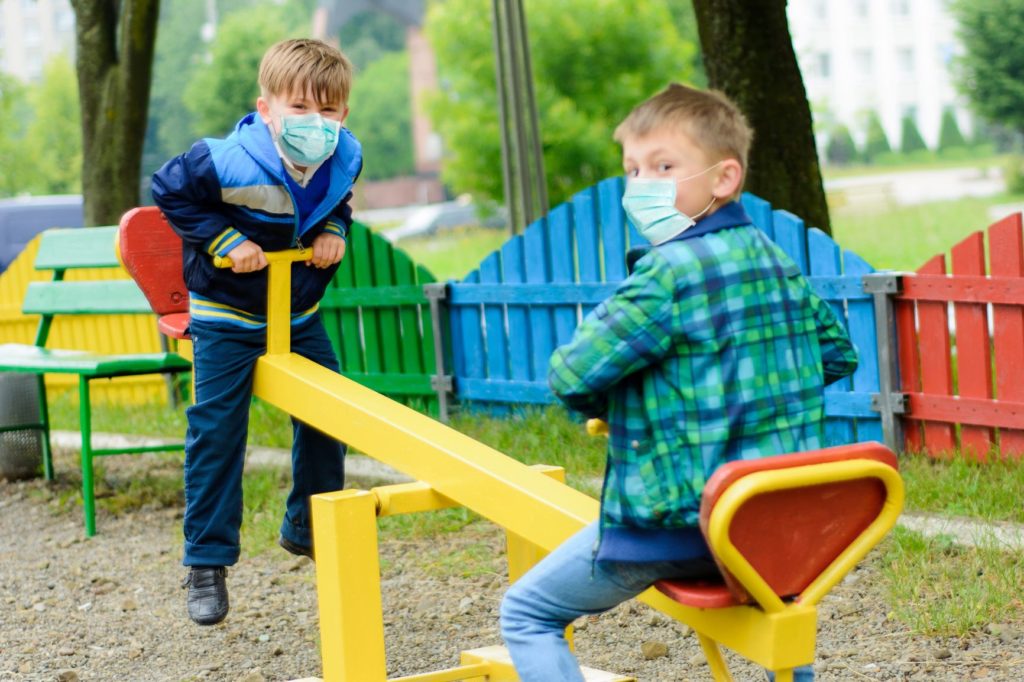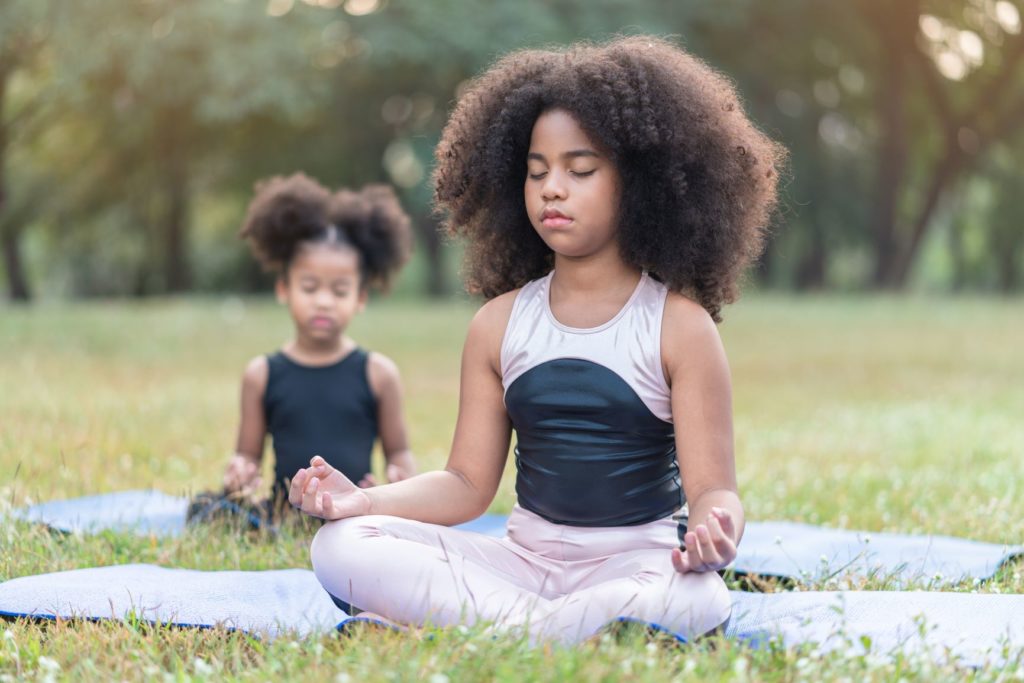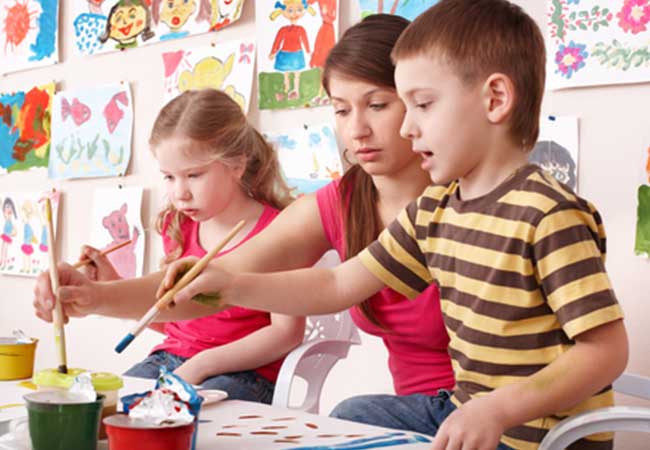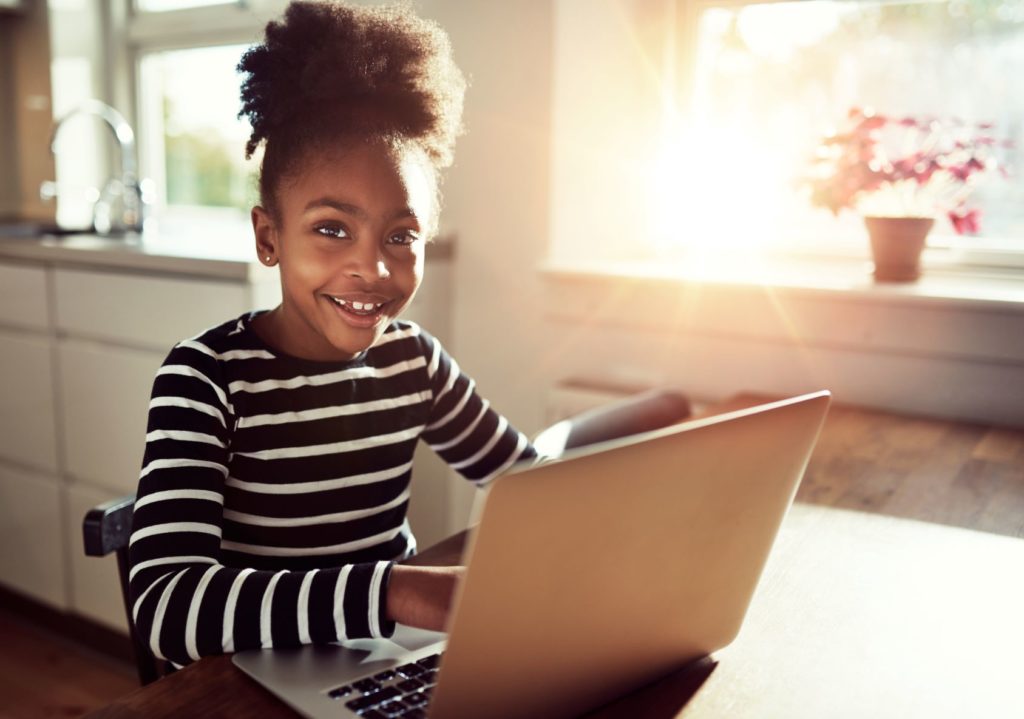
As kids return to in-person and virtual learning programs this year, parents will continue to rely on after school programs that provide enriched learning and social, cognitive and skill development opportunities.
To meet the needs of parents and kids in the community, after school program leaders must design activities that provide these opportunities while respecting public health guidance in the right ways.
To help you set up your after school program for success, we’ve put together a list of 10 COVID-safe activities that provide great learning and development opportunities for kids while doing your part to protect the community. We encourage after school program leaders to adapt and refine our activities to fit the remote learning context or meet the specific needs of families in their communities.
10 COVID-Safe After School Program Activities for Kids
Schedule Unstructured Play Time
Kids affected by school and child care center closures in 2020 may be experiencing mental health challenges. Some kids have experienced feelings of loneliness or isolation during the pandemic, while others have felt anxiety or uncertainty about the future.
To help kids cope with these challenges, after school programs can offer unstructured play sessions, either indoors or outdoors. These activities help kids regain their confidence in the school environment, reconnect with classmates and other community members, and rebuild their sense of belonging in the community.
Unstructured play does not need to have specific learning objectives – kids should be permitted to express themselves, solve problems and use their imagination while developing social, emotional and creative skills through play.
Practice Mindfulness and Meditation

An after school program that incorporates mindfulness and meditation practice can help kids develop emotional regulation and coping skills as they reintegrate into social settings after the COVID-19 school shutdowns.
Mindfulness training teaches kids to focus their thoughts and attention on the present moment instead of fixating on past events or worrying too much about the future. Kids also learn to observe their thoughts and environment more carefully, and to view themselves and their past experiences in a more positive way that promotes self-esteem development.
A growing body of research is revealing the benefits associated with mindfulness and meditation practice for kids. Children exposed to mindfulness practice can increase their empathy and self-awareness, develop techniques for calming the mind and managing emotions, and improve their classroom behavior. Various studies have also found that teaching kids mindfulness can improve their attention and focus, boost their grades and lower rates of anxiety, stress and depression.
Write Letters to Friends and Family
During the coronavirus pandemic, many people have been self-isolating to prevent themselves from getting sick or spreading the infection to others. As a result, many kids have gone weeks or months without seeing many of their friends or relatives. To help kids cope with these changes, after school programs can help kids write letters to friends and family members who they may have been separated from because of COVID-19.
This activity provides great context to teach kids valuable self-care and emotional skills. Program supervisors or volunteers should start age-appropriate conversations about the impacts of self-isolation, using questions like:
- Is there anyone whom you haven’t seen for a long time during the last few months?
- How would you feel if you had to be alone and couldn’t see your friends?
- What can we do to make sure the people we care about don’t feel lonely?
Loneliness is emerging as a major health risk among older demographics, making now the best time to drive home the importance of friendship for our kids. This activity can feed into anti-bullying education, self-care education and other social/emotional development activities.
Facilitate Independent Creative Time
Kids are naturally curious and wondrously imaginative, but helping them reach their full creative potential means providing them with more opportunities for unstructured creative time, along with the tools they need to express themselves.
Before and after school programs that facilitate independent creative time give kids the opportunity to hone their creative mindset and express themselves in their medium of choice. Kids should be given lots of freedom and materials to bring their imaginations to life – they may want to write a story, journal or a letter, draw or paint a picture, build a sculpture or construction, write a short skit, make a craft or something totally different.
Program leaders can connect with parents to identify a child’s areas of interests and provide the necessary resources that empower that child to create.
Introduce Stretching and Yoga
After school programs that focus on the development of self-care habits and life skills for kids can make an impact by introducing kids to yoga and a basic stretching routine. These are activities that every person can pursue on their own throughout their lives to maintain their physical mobility, flexibility and ultimately, their independence into adulthood and old age.
After school programs based around physical activities should teach kids to warm up with stretching before any intense physical activity. Kids can be educated on the differences between static and dynamic stretching, and the importance of stretching for injury prevention. Program leaders can incorporate basic movements from yoga with other stretches to develop simple routines that kids can learn during the program and practice at home.
Play Racquet Sports
Thousands of children have missed out on playing their favorite sports during the coronavirus pandemic. A program that incorporates racquet sports can help these kids get back into physical activity and discover new sports they may never have played before. Sports like tennis, badminton, and ping-pong can help kids develop their motor skills and hand-eye coordination while having fun and learning the value of practice.
If your program does not have access to tennis courts, kids can practice their skills by hitting a tennis ball against the side of a building (watch out for windows!), or back-and-forth with a partner in an outdoor space with physical distancing. If possible, ping-pong tables should be moved to the outdoors where there’s better ventilation. Badminton may be the best option for racquet sports club – nets can be set up almost anywhere and racquets are available for as little as $10 each. For cleaning tips, you can refer to the CDC’s website to ensure the racquets and other materials you’re using are properly cleaned.
Organize a Running or Jogging Club
An after school running or jogging club is a great way to encourage physical activity while following protocols for physical distancing. Running is an individual sport that helps kids develop personal qualities like discipline and perseverance, along with balance, speed and endurance which they can carry over to other sports.
The best venue for your running club is an outdoor running track. If you can’t access one, choose an outdoor space where you can create a simple loop course for your runners. Ensure that supervisors can see every child at all times as they run or jog the course.
Kids don’t need to wear a mask while running, but they should follow social distancing rules and remain at least six feet apart. You can create a course with a “cruising lane” and a socially distant “passing lane” to make it easier.
Create an After School Art Program

An after school art program gives kids the opportunity to express themselves through a variety of mediums, get more art instruction and project ideas, and receive valuable feedback and praise for their creative work.
These programs can work both in-person or remotely. For in-person programs, kids may be given the option of working either inside or outside if enough supervision is available. Program managers should encourage kids to bring their own art supplies if possible to reduce object-sharing between program participants.
Kids who are engaged in remote learning can also participate in art clubs from their homes. They can use video conferencing to receive instruction and share their work with program leaders, volunteers and other participants. Program supervisors can make sessions exciting by assigning kids special “art challenges” based on the materials that parents provide.
Show a Video about Germs
Many children are still struggling to make sense of what’s happened this year and why they’ve been kept out of school or away from their friends and certain family members. After school programs can play an important role in helping kids make sense of the coronavirus pandemic with age-appropriate educational materials and discussion.
As a starting point, program leaders can teach kids about how germs spread in the environment or show an educational video on the subject. Program leaders should emphasize that kids don’t need to be afraid, but that they can help protect their communities by practicing infection prevention techniques.
Program leaders should encourage a two-way dialogue where kids can express concerns or ask questions, and program leaders can provide reassurance and create opportunities to teach kids more about infection prevention strategies, including proper hygiene and physical distancing.
Teach Kids to Code

The world’s leading tech entrepreneurs all have an important thing in common: they were all exposed to technology early in life through summer camps and extracurricular programming. After school programs that teach computer programming can get kids working with technology at a young age and help them find a path to a bright future.
Learning to code helps kids develop cognitive skills like abstract thinking and problem-solving, leading to success in school and in life. Kids will also have a huge head start if they choose to pursue a computer science career – and there’s going to be plenty of demand for programmers in our increasingly digital society.
Plan New Activities & Power Your After School Program with Procare Solutions
Procare Solutions contributes to the success of before and after school programs, providing software tools that assist with attendance tracking, keep program leaders connected and engaged with families, and automate billing to ensure on-time payments for tuition and extra activities.
With our after school program management software, program leaders spend less time on administrative tasks and more time making an impact in the community and in the lives of their students.



